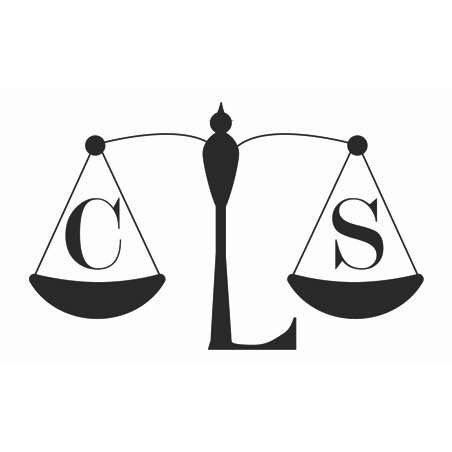Best FDA Law Lawyers in Sanaa
Share your needs with us, get contacted by law firms.
Free. Takes 2 min.
List of the best lawyers in Sanaa, Yemen
About FDA Law in Sanaa, Yemen
FDA Law in Sanaa, Yemen refers to the set of regulations, guidelines, and legal frameworks governing the approval, safety, import, export, manufacturing, distribution, labeling, and advertising of food, drugs, medical devices, and cosmetics. While Yemen does not have an exact counterpart to the United States Food and Drug Administration, the term "FDA Law" is commonly used to describe the body of rules overseen by various government agencies to ensure public health and safety. In Yemen, these responsibilities are primarily managed by the Supreme Authority for Medicines and Medical Appliances (SAMMA) and the Ministry of Public Health and Population, along with relevant municipal departments in Sanaa.
Why You May Need a Lawyer
Legal assistance is crucial when dealing with FDA Law in Sanaa for several reasons. Businesses and individuals often seek help in navigating complex regulations related to the approval of pharmaceuticals, food products, or medical devices. Common situations where a lawyer may be necessary include seeking licenses for importing or manufacturing medical supplies, defending against product seizures or recalls, responding to regulatory investigations, drafting compliance policies, or handling disputes over intellectual property in the life sciences sector. Additionally, if you are facing penalties for non-compliance or if your products are subject to inspection or detainment by authorities, a qualified lawyer can provide invaluable guidance and representation.
Local Laws Overview
In Sanaa, Yemen, FDA-related matters are regulated under multiple national laws and ministerial decrees. The primary framework includes laws related to public health, customs, consumer protection, and pharmaceutical control. Key aspects of local FDA Law include:
- All imported or locally manufactured medicines, medical devices, and food products require registration and approval from SAMMA and/or the Ministry of Public Health and Population.
- Product labeling must meet specific requirements regarding language, ingredient disclosure, and country of origin.
- Unauthorized products are subject to seizure, recall, or destruction by customs and municipal authorities.
- Strict regulations apply to the advertising and marketing of food, drugs, and medical devices, especially related to health claims and promotional materials.
- Periodic inspections of manufacturing and storage facilities are conducted to ensure compliance with safety and quality standards.
Failure to comply with these rules can result in administrative penalties, fines, product confiscation, or, in severe cases, criminal liability.
Frequently Asked Questions
What is considered a "drug" or "medical device" under Yemeni law?
A drug is any substance intended for use in diagnosis, cure, mitigation, treatment, or prevention of disease in humans or animals. A medical device includes instruments, apparatus, or machines intended for medical purposes, diagnosis, or treatment. Both categories are defined and regulated by specific legislation in Yemen.
Can I import over-the-counter medications into Sanaa for personal use?
Personal importation of medicines may be permitted for small quantities, but you must declare them to customs and provide a valid prescription or documentation. Larger shipments or commercial imports require registration and prior approval.
What are the labeling requirements for food products sold in Sanaa?
Food products must display information about the product name, ingredients, net weight, manufacturer, country of origin, expiration date, and storage instructions. Labels must be in Arabic or provide an approved translation.
How are product recalls handled in Sanaa?
If a product poses a risk to public health, authorities may order a recall. The manufacturer or importer is typically responsible for notifying distributors, collecting affected products, and ensuring proper disposal under regulatory supervision.
Is advertising medicine or health supplements regulated?
Yes, advertising medicine, medical devices, or health supplements is strictly regulated. All promotional material must be approved by the relevant authority. False, misleading, or unsubstantiated claims are prohibited.
What are the consequences of non-compliance with FDA Law in Yemen?
Consequences range from administrative fines and product confiscation to criminal charges in cases of significant harm or intentional fraud. Your business license may also be suspended or revoked.
How can I register a new medicine or device in Sanaa?
You must submit a detailed registration dossier, including product data, safety and efficacy documentation, manufacturing information, and lab test results, to SAMMA or the relevant authority. The process involves evaluation, possible inspection, and approval.
Are there restrictions on importing foods with animal ingredients?
Certain products containing ingredients such as pork, alcohol, or unapproved additives are prohibited or require special permits, in accordance with Yemeni law and Islamic dietary regulations.
Who is responsible for ensuring product compliance in Yemen?
The manufacturer, importer, or distributor is responsible for compliance with all applicable laws, including registration, safety, labeling, and quality controls.
What should I do if my products are detained by customs in Sanaa?
Immediately seek guidance from a qualified lawyer and prepare to present all required documents, such as import permits, registration certificates, invoices, and proof of compliance. Your lawyer can assist in negotiations and appeals with customs officials.
Additional Resources
For more information or assistance regarding FDA Law in Sanaa, consider contacting the following organizations:
- Supreme Authority for Medicines and Medical Appliances (SAMMA)
- Ministry of Public Health and Population - Licensing and Regulation Department
- Ministry of Industry and Trade - Consumer Protection Division
- Sanaa Municipality - Food Safety and Regulatory Offices
- Local chambers of commerce or trade associations for pharmaceutical and food industries
Next Steps
If you need legal assistance relating to FDA Law in Sanaa, Yemen, start by gathering all relevant documents, such as import records, registration certificates, and correspondence with regulatory authorities. Prepare a clear summary of your situation and concerns. Next, consult a lawyer who specializes in administrative, commercial, or health law with direct experience in regulatory matters. Your lawyer can assess your case, explain your rights and obligations, and help you develop a strategy for compliance or defense. Given the complexity and potential risks, having professional support is highly recommended to protect your business or personal interests.
Lawzana helps you find the best lawyers and law firms in Sanaa through a curated and pre-screened list of qualified legal professionals. Our platform offers rankings and detailed profiles of attorneys and law firms, allowing you to compare based on practice areas, including FDA Law, experience, and client feedback.
Each profile includes a description of the firm's areas of practice, client reviews, team members and partners, year of establishment, spoken languages, office locations, contact information, social media presence, and any published articles or resources. Most firms on our platform speak English and are experienced in both local and international legal matters.
Get a quote from top-rated law firms in Sanaa, Yemen — quickly, securely, and without unnecessary hassle.
Disclaimer:
The information provided on this page is for general informational purposes only and does not constitute legal advice. While we strive to ensure the accuracy and relevance of the content, legal information may change over time, and interpretations of the law can vary. You should always consult with a qualified legal professional for advice specific to your situation.
We disclaim all liability for actions taken or not taken based on the content of this page. If you believe any information is incorrect or outdated, please contact us, and we will review and update it where appropriate.









